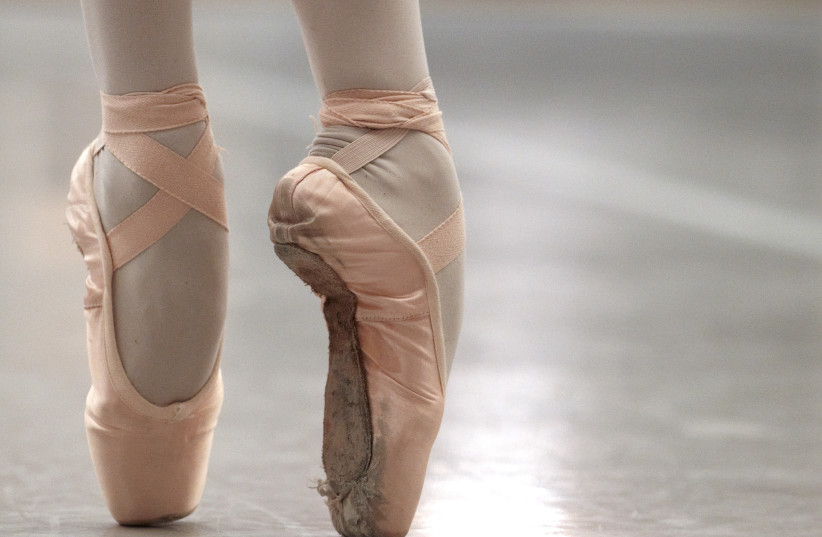The Lover (Der Liebhaber) was the first full-length work by Marco Goecke to be performed in the Hanover State Opera since he became the company’s artistic director three years ago.
One of the most notable choreographers of our time, Goecke was born in Wuppertal, Germany. He studied ballet in Munich and The Hague. He danced in the most important dance companies in Germany and in 2000 created his first choreography. Since then he has won numerous prizes and has created dances for the most notable companies in the world. He was appointed ballet director of the Hanover State Opera beginning with the 2019/20 season. In May 2022, he was awarded the German Dance Prize 2022, for The Lover.
What is the story about?
Inspired by the successful book by Marguerite Duras (1914-1996), the story is set against the backdrop of French Indochina in 1929. It tells the story of a forbidden romance between a 15-year-old girl from an impoverished French family and an older, wealthy Chinese-Vietnamese man.
The girl is traveling by ferry across the steamy Mekong Delta. She is coming back from her family’s home and going to her boarding school in Saigon. A 27-year-old heir of a Chinese business magnate notices her and offers her a ride in his chauffeured limousine. They are immediately attracted to each other and the girl becomes his lover, until he surrenders to his father and breaks off the affair. The story, says Goecke, fascinated him for many years.

“The idea of making a ballet out of this great work was something I thought about for a long time,” he says in a conversation after a performance at the Hanover Opera House. “I was interested in doing this piece because I am interested in telling stories. I want to do works that are more poetic. The piece has to do with me, too. It is The Lover by Duras, but it is also about me. Otherwise, it doesn’t work. I really always talk about myself.”
Goecke’s choreography gives a powerful visual interpretation of the romantic story about a forbidden affair. Despite being minimalistic, the distinctive choreography is very expressive, and the dancers, the music and the set are overwhelmingly beautiful.
As the ballet opens, one can almost feel the humidity and dust of the Mekong Delta, created with a minimal yet mesmerizing stage setting. There is a wealth of countless fast, nervous movements, so typical of Goecke’s work, that expose a deep understanding of human feelings and express passion, love and heartbreak.
“I follow the book, but, still, something always stays open. What is so interesting about Duras is she says everything quietly. There is no dogma. I find it connected to dance – there is room for interpretation. The dance is not a narration – one-on-one – of the novel. People want the dance to follow the book, but I don’t think that you need to understand everything. At the moment, I am so against understanding altogether,” he says, laughing.
“There are no winners and no losers. When you go to the theater, you need to be open for something chaotic that will maybe reach you. I am not interested in giving facts.”
The stage, as in many of Goecke’s works, is almost empty and dark.
“I am a minimalist,” he says. “So for me it is a lot. It is a constant battle. I don’t want to have too much on stage. Duras is writing about a very hot, dusty, boring delta, not a very pretty touristic place.
“Duras hated the film, but some images from the film were very strong – like the hat; that image that was so visually powerful in the movie. Duras describes the girl in detail – her standing on the boat with the pink men’s hat, the old silk dress and the sparkling shoes.
“But I need to be careful, not to do too much. I need to choose: what can I show? what can I take? and what will be kitsch?” he continues.
“Of course, we need a little kitsch,” he says with a smile. “Like in cooking, we need a bit of salt – but not too much. In the book, there’s that feeling of longing and eroticism. It is a Hollywood story. It is such a big piece of art, but, still, there is everything in it – sex, crime, what you need for a good movie. No wonder it was her most successful book.”
And like all good movies, it ends with an understanding. “What she is writing at the end is something we all know – how time goes by. In the last sentence, she reflects her whole life. She promises us that love can stay forever. Love can be there forever, and it never dies.”
The State Opera Hanover will present The Lover at the Israeli Opera March 2-4. For tickets go to www.israel-opera.co.il
